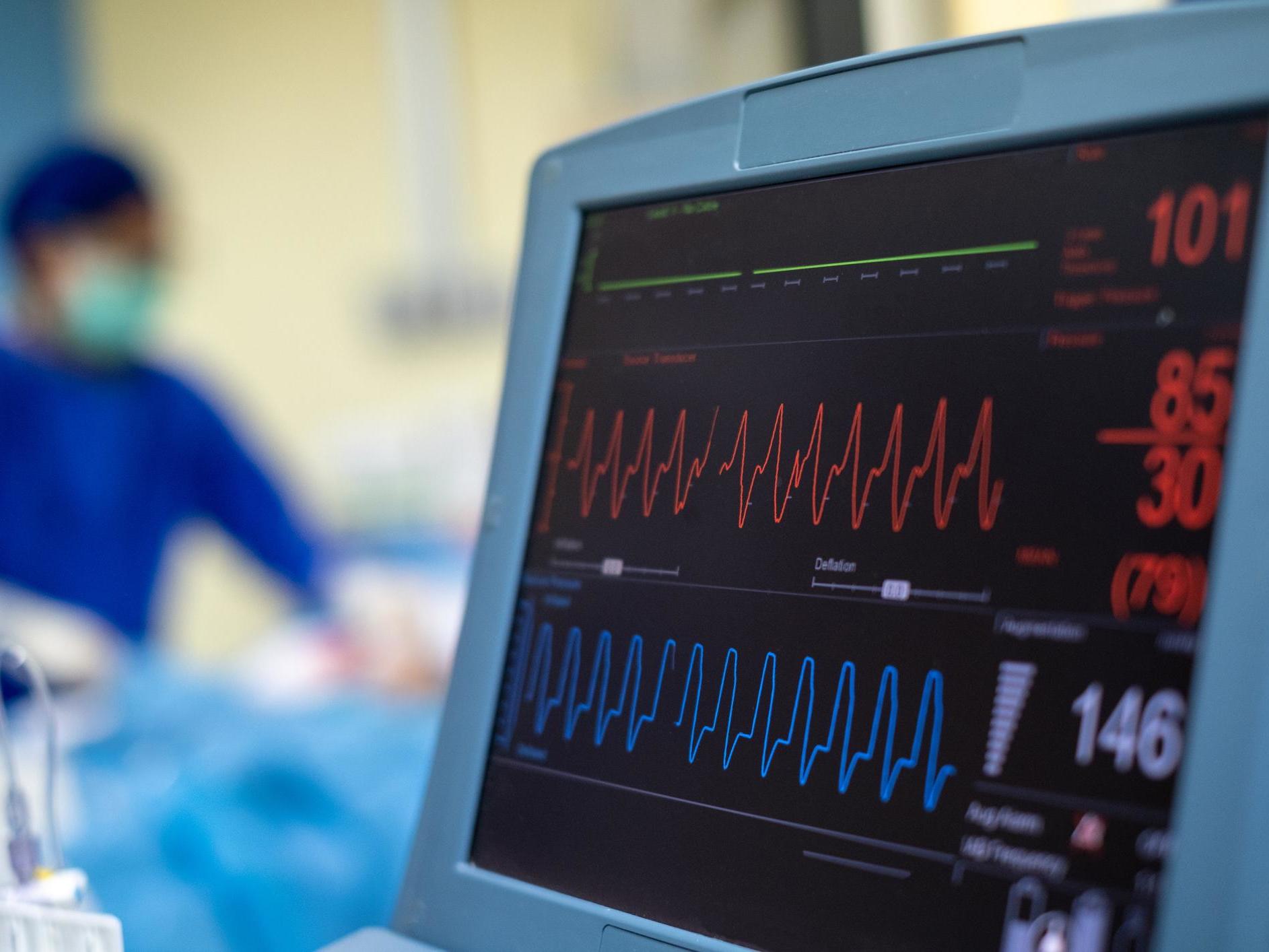Coronavirus: ‘Stay at home’ message may have led to rise in heart attack deaths during lockdown, study finds
‘People will have died or developed heart failure as a result of not seeking treatment for their heart attack’

Patients suffering heart attacks during the coronavirus lockdown stayed away from hospitals with some dying as a result, a new study has found.
In an analysis of more than 50,000 patients who suffered heart attacks and were treated in 99 NHS hospitals in England both before and after lockdown, researchers found the proportion of deaths for patients with a milder form of heart attack jumped during the first month of lockdown.
Those suffering more severe heart attacks actually saw a lower death rate with hospitals keeping their emergency heart services running.
Dr Jianhua Wu, associate professor in biostatistics at the University of Leeds and lead author of the study, said: “It has revealed that although patients were able to get access to high levels of care, the study suggests a lot of very ill people were not seeking emergency treatment and that may have been an unintended consequence of the ‘stay at home’ messaging.”
The research comes as the latest data from the Office for National Statistics showed the numbers of deaths in private homes continues to be above the five-year average while deaths in hospitals are lower.
The government’s chief medical officer Chris Whitty has warned of “indirect” deaths as a result of the disruption to health services caused by coronavirus and NHS leaders have urged patients not to delay seeking help.
The latest study by researchers at the University of Leeds found the numbers of heart-attack patients presenting at hospital fell sharply, at one point down by almost half. The numbers later increased but remained below pre-lockdown levels when the study ended in May.
For patients suffering a partial blockage of blood vessels in the heart, the most common form of a heart attack, attendances at hospital were down 49 per cent. The death rate for these patients during the first month of lockdown jumped 39 per cent compared with the 14-months before.
The 30-day mortality rate increased from 5.4 per cent before lockdown to 7.5 per cent of all patients between 23 March and 19 April.
For the more serious heart attacks, where blood vessels are completely blocked, hospital attendance fell by 29 per cent but death rates dropped by 25 per cent, falling from 10.2 per cent to 7.7 per cent during lockdown.
Chris Gale, professor of cardiovascular medicine at the University of Leeds, said: “There is little doubt that the substantial drop in admissions to hospital with heart attack will have had substantial repercussions on population health outcomes.
“People will have died or developed heart failure as a result of not seeking treatment for their heart attack. The inflation in deaths among people attending hospital with heart attack is very likely an early signal of the mortality and morbidity that is yet to be observed. The NHS now needs to be ready to support those who did not attend hospital.”
The research could not identify the exact cause of the changes in death rates and it is possible the patients may have had their condition worsened by Covid-19 but the study authors believe delays in seeking help may have played a part.
Prof Gale added: “It was not the case that people were not having heart attacks – they were deciding not to go to hospital. Some were undoubtedly heeding the message to stay at home, others might have been afraid of picking up the virus in hospital or were trying to shield because they had other conditions.
“But a heart attack is a medical emergency and if people do not seek help, they die or go on to develop heart failure. We need to make sure people are aware that emergency services continued to operate.”
Commenting on the findings, Steve Goodacre, a professor of emergency medicine at the University of Sheffield, said: “We should be careful not to overstate what we know about indirect deaths and how many there are likely to have been. A previous Lancet study on this topic estimated that there had been 5,000 fewer heart attack admissions than expected across England between January and May. This could have led to a few hundred avoidable deaths.
“Each one is obviously a tragedy, but the total number needs to be considered in the light of the total estimated number of excess deaths across the pandemic, which runs into tens of thousands.”
The findings are published in the European Heart Journal – Quality of Care and Clinical Outcomes.
Join our commenting forum
Join thought-provoking conversations, follow other Independent readers and see their replies
Comments
Bookmark popover
Removed from bookmarks